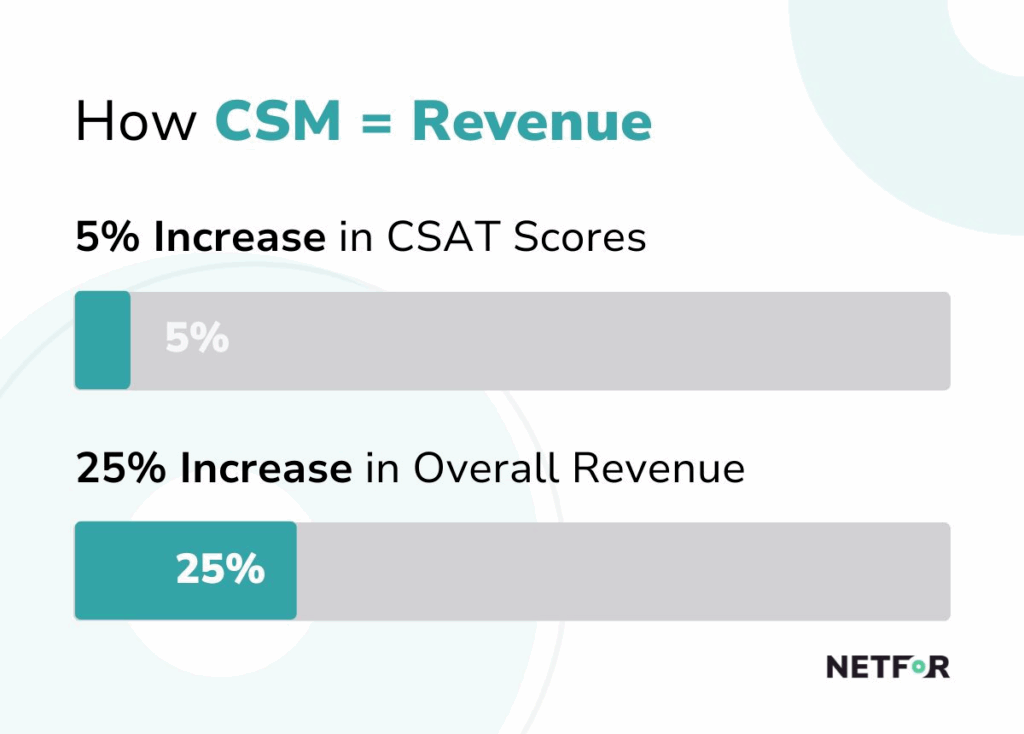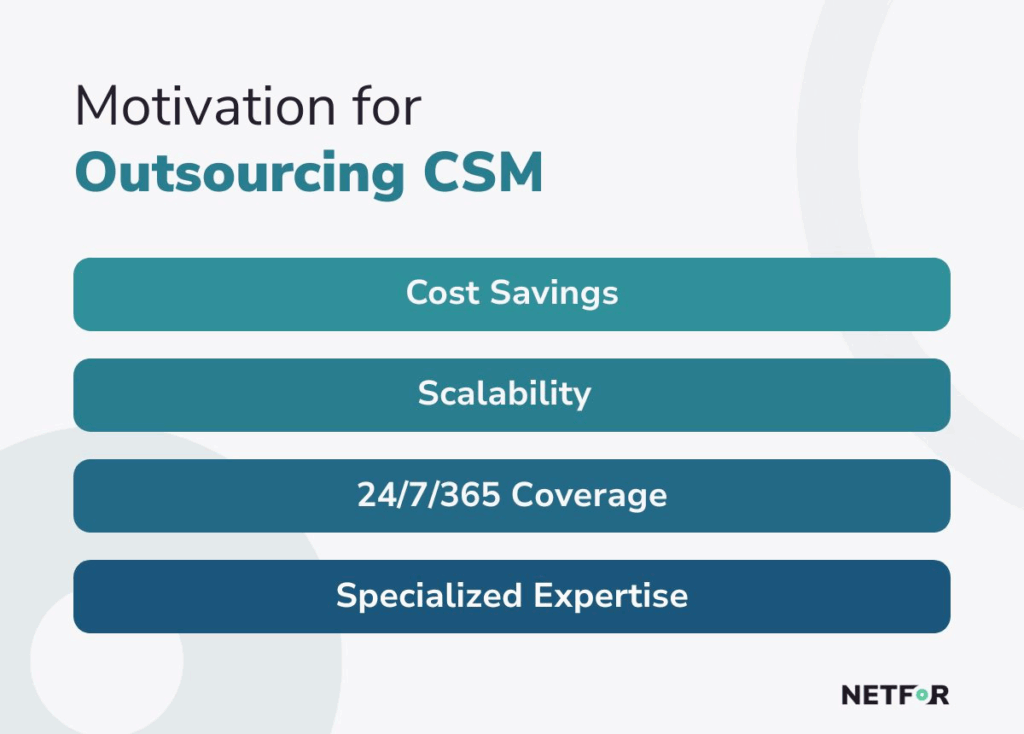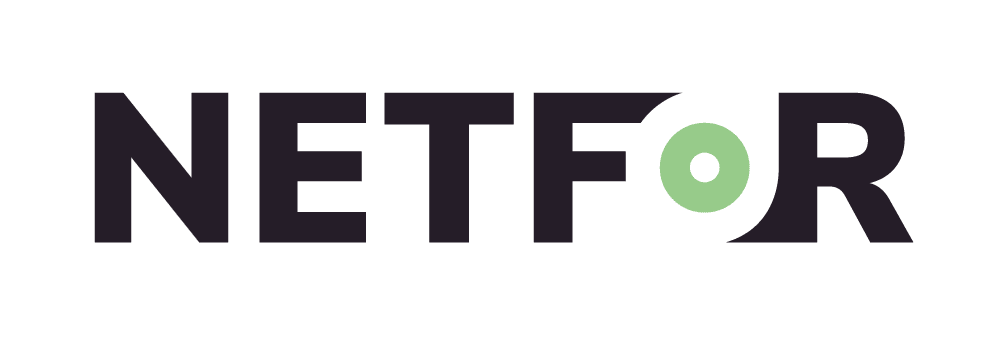Technology Driving Modern Customer Service Management
The technological transformation within customer service management is not just ongoing, it is accelerating at a remarkable pace. Projections indicate that by 2025, an overwhelming 95% of all customer interactions will be powered in some way by artificial intelligence. This represents a fundamental and widespread shift in how modern businesses approach, manage, and nurture their customer relationships from the ground up.
AI and Automation Impact
- ROI: Companies report $3.50 return for every $1 invested in AI-driven service technologies
- Cost reduction: AI-powered tools can cut overall support costs by up to 30%
- Efficiency gains: AI can reduce issue resolution times by up to 50%Customer Service Management (CSM) isn’t just about solving problems. It’s a growth engine that can transform how businesses connect with their customers and drive measurable revenue impact. Poor service costs businesses $3.7 trillion globally each year, while great service drives loyalty, repeat business, and brand trust.
Too many organizations still treat customer service as a cost center, despite its direct impact on revenue and retention. The stakes are higher than ever: companies lose $856 billion annually in the U.S. from poor service experiences. Yet businesses that invest in effective customer service management see remarkable returns.
By partnering with customer service call center providers and adopting the best customer service solutions, companies can transform service into a profit center while delivering consistently excellent experiences. This comprehensive approach to managing customer service creates competitive advantages that extend far beyond individual interactions.
Why Customer Service Management Matters
The financial stakes of customer experience have never been clearer. These aren’t abstract numbers but measurable impacts on business performance.
Customer behavior patterns reveal the true cost of poor service:
- 75% of customers have switched brands due to poor service experiences
- Over 60% of customers in retail, QSR, and healthcare sectors stop spending after a bad experience
- 89% of customers are more likely to make repeat purchases after a positive service experience
The positive upside is equally compelling. Research consistently shows that a 5% increase in customer retention drives 25-95% profit growth. This dramatic range reflects how retention impacts different business models, but the direction is universally positive.

ROI Calculation Framework for CSM
Calculating the return on investment for Customer Service Management requires tracking key metrics:
- Customer Lifetime Value (CLV) improvement from better retention
- Reduced churn costs (typically 5-25 times more expensive than retention)
- Operational efficiency gains from streamlined processes
- Revenue growth from positive word-of-mouth and referrals
Technical metrics that drive these outcomes include Customer Satisfaction (CSAT) scores, Net Promoter Score (NPS), retention rates, and churn rate calculations. Companies tracking these metrics consistently outperform those that don’t measure customer service impact.
Check out our proprietary savings calculators for service desk estimates here.
What Excellent CSM Looks Like: Benchmarks & Best Practices
World-class customer service management operates against specific, measurable benchmarks. Understanding these standards helps organizations identify gaps and set realistic improvement targets.
Core Performance Metrics
- First Call Resolution (FCR): 70-79% is considered good; 80%+ represents world-class performance
- Average Speed of Answer (ASA): Industry target is 28 seconds or less
- Service Level Agreement (SLA): 80% of calls answered within 20 seconds
Channel-specific expectations have evolved significantly:
- Live chat: Under 1 minute response time
- Email support: Within 4 hours
- Social media: Within 2 hours
- Phone support: World-class chat expectations include 40-second response times
Industry Performance Variations
Different sectors face unique challenges that impact their benchmarks:
- Retail operations typically achieve 78% FCR with shorter Average Handle Times (AHT).
- Healthcare environments require longer interactions (6.6 minutes AHT) due to compliance requirements and patient care complexity.
- Government services face additional scrutiny, as citizen satisfaction directly impacts public trust.
Netfor consistently outperforms these benchmarks with 92% FCR across the board, demonstrating that exceptional performance is achievable with the right approach, knowledge, and technology.
These variations highlight why partnering with customer service call center providers who understand industry-specific requirements is crucial for success.
Outsourcing as a Strategic CSM Solution
Customer support outsourcing has evolved from a cost-cutting measure to a strategic business enabler, boosting efficiency and growth. Companies outsource for operational benefits like specialized expertise, advanced technology, better customer interactions, faster resolutions, consistent branding, and scalability for fluctuating demand. Financially, outsourcing optimizes resource allocation, allowing companies to focus on core competencies and innovation. This leads to improved ROI, reduced overheads, predictable costs, and mitigated risks from recruitment and turnover, ultimately enhancing business performance and sustainability.
Core Motivations for Outsourcing
- Cost savings: 40-60% reduction compared to in-house operations
- Scalability: Rapid resource adjustment for changing call volumes
- 24/7 coverage: Round-the-clock availability without internal staffing challenges
- Specialized expertise: Access to advanced technology and proven methodologies
The transformation from expense to strategic advantage happens when organizations select the right help desk outsourcing company. Key partner selection criteria include:
- Industry knowledge and experience
- Technology stack compatibility
- Knowledge management systems
- Quality assurance processes
- Compliance capabilities (HIPAA, PCI-DSS, etc.)
- Cultural fit and communication standards
Addressing Common Outsourcing Concerns
Organizations often hesitate due to perceived risks around loss of control, quality consistency, data security, and cultural fit. Modern outsourcing partnerships address these concerns through:
- Detailed Service Level Agreements (SLAs) with performance dashboards
- Regular quality monitoring and reporting
- Comprehensive data security protocols
- Cultural training and alignment programs
Onshore vs. Offshore Considerations
The choice between onshore and offshore providers significantly impacts service quality:
- Onshore agents offer native language and cultural alignment
- Guaranteed compliance with U.S. data security regulations
- Reduced communication barriers and time zone challenges
- Higher customer satisfaction scores due to cultural understanding
IT help desk service providers who operate onshore consistently deliver superior results for companies serving American customers. Their proximity allows for a deeper understanding of cultural nuances and business practices, which translates into more effective and personalized support.

Real Time Interaction Guidance (RTIG) stands as a significant advancement in customer service technology. This innovative AI-powered system provides real-time sentiment analysis and offers immediate coaching to agents during live interactions. By continuously monitoring conversations, RTIG ensures that agents receive timely support and suggestions, directly enhancing the quality of issue resolution and significantly improving overall agent performance. This proactive approach helps maintain high standards in customer interactions and fosters continuous agent development.
Knowledge Management Systems
Effective knowledge bases have become essential infrastructure:
- Ticket volume reduction: 25-35% decrease in incoming support requests
- CSAT improvement: 37% boost in customer satisfaction scores
- Agent efficiency: 15-25% reduction in Average Handle Time (AHT)
CRM and Help Desk Platform Adoption
The foundation of modern Customer Service Management rests on robust platforms:
- 91% of companies with more than 10 employees use CRM systems
- Salesforce holds 23.9% market share in the CRM space
- Integration between CRM and help desk systems enables comprehensive customer journey tracking
Omnichannel Strategy Benefits
Businesses implementing comprehensive omnichannel strategies see remarkable results:
- 91% greater year-over-year customer retention rates
- Consistent experience across phone, email, chat, and social media channels
- Improved customer journey tracking and personalization capabilities
Customer experience management solutions that effectively integrate multiple communication channels are crucial for creating the seamless interactions that modern customers increasingly expect and value. These integrated platforms ensure a consistent and cohesive customer journey across all touchpoints, eliminating fragmented experiences.
Industry Challenges and Netfor’s Proof in Action
Each industry confronts distinct customer service management challenges, necessitating tailored strategies and solutions to address its specific operational needs and customer expectations. A one-size-fits-all approach is rarely effective, as the demands of sectors like retail, healthcare, and finance vary significantly.
Retail and QSR Challenges
- High-volume, omnichannel ordering creates consistency challenges across locations
- Third-party delivery platform integration adds complexity
- Seasonal demand fluctuations require scalable support models
- Brand reputation management across multiple touchpoints
Healthcare Sector Requirements
- HIPAA compliance mandates strict data protection protocols
- Higher Average Handle Times due to patient care complexity
- Specialized knowledge requirements for medical billing and insurance
- Regulatory oversight requiring detailed documentation
Government Service Expectations
- Citizen satisfaction directly impacts public trust in institutions
- Average citizen satisfaction scores range from 59-65%
- Citizens who are “extremely satisfied” are 8.5 times more likely to trust the agency
- Process consistency and knowledge capture are critical for service continuity
Netfor’s Performance Excellence
Managed customer support services providers like Netfor demonstrate that exceptional performance is achievable across industries:
- 90% First Call Resolution (FCR) versus the world-class standard of 80%
- 97% of calls answered in under 20 seconds, far exceeding the industry SLA of 80% in 20 seconds
- Proprietary knowledge base systems enabling superior FCR rates
- Real Time Interaction Guidance (RTIG) AI for sentiment analysis and agent coaching
Proven Results Across Client Partnerships
Netfor’s track record demonstrates measurable impact:
- Fortune 500 client saved $2.5 million, including $500,000 in eliminated overspending (Read Here)
- Simon Property Group: Five-year partnership supporting 200+ malls nationwide
- Quillo (nonprofit): Reliable 24/7 support enabling mission-focused operations (Read Here)
- INBiz (government): Process development and knowledge capture, ensuring service consistency

Technical Advantages
The combination of technology and expertise creates competitive advantages:
- 100% onshore team ensuring cultural alignment and compliance
- Advanced AI integration without sacrificing human connection
- Scalable infrastructure supporting rapid growth or seasonal demand
- Comprehensive reporting and analytics enabling continuous improvement
These results demonstrate how the best customer service solutions combine human expertise with advanced technology to deliver measurable business outcomes.
Transforming Customer Service Into a Revenue Driver
Customer service management represents far more than a cost center or operational necessity. It’s a fundamental revenue driver that creates competitive advantages and builds lasting customer relationships.
The evidence is overwhelming: poor service costs businesses trillions globally, while excellent service drives measurable profit growth. Companies that recognize this shift and invest in comprehensive CSM strategies position themselves for sustainable success.
Excellence in customer service management requires integrating people, processes, technology, and strategic partnerships. Organizations that master this integration consistently outperform competitors and build stronger customer relationships.
Key Success Factors
- Measurable performance standards aligned to exceed industry benchmarks
- Technology integration that enhances rather than replaces human connection
- Strategic outsourcing partnerships that provide expertise and scalability
- Continuous improvement processes based on data and customer feedback
The Netfor Difference
Netfor’s onshore, AI-enabled, customer-first model consistently outperforms industry standards while delivering measurable ROI. This approach proves that businesses can achieve world-class performance while maintaining cost efficiency and operational flexibility.
The future belongs to organizations that view customer service management as a strategic asset. Those who continue treating it as a cost center will find themselves at an increasing disadvantage.
Explore how our customer service call center solutions can transform your customer experience and protect your bottom line. Contact us to learn more about implementing world-class customer service management in your organization.

